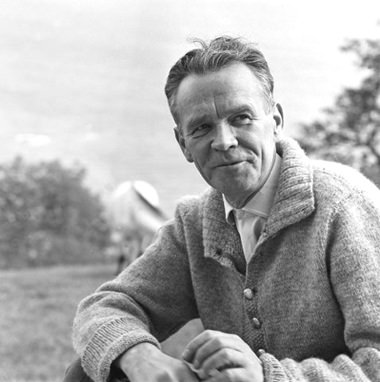If it sounds like this is going to be a breathless piece of journalism about UFOs over Pattaya, I am afraid it’s not. I’m sorry if you are disappointed but honestly, life can sometimes be a b*tch. Anyway, with the relentless orange glow from neon signs and street lights, you’d be lucky to see anything in the night sky above Pattaya, let alone a mother-ship from Planet Zorg.

For people who live in the city, a clear night sky is rare indeed. I remember once driving through Snowdonia National Park in the middle of the night. It was high in the mountains and the place was deserted – not another vehicle in sight and not even a herd of dozing animals. Still, it was about one o’clock in the morning, so perhaps this was not surprising.
Now you are probably wondering why I’m telling you all this. (The thought had occurred to me – Ed.) Well, I was suddenly compelled to stop the car and soak in the night. When I switched off the ignition and became accustomed to the darkness, the magnificence of the night sky was revealed. The Milky Way was as clear as a river across the sky: the stars shone with a throbbing intensity and from time to time a falling star would briefly appear. Jupiter shone like a searchlight and the silence was total. I would have stayed longer but it was intensely cold and I didn’t want to attract the attention of unwelcome predators, human or otherwise.
Some composers have been inspired by the night sky. The Finnish composer Kimmo Hakola recently wrote a piece about the distant Oort Cloud which, with breath-taking originality, he named The Oort Cloud and another Finnish composer Kaija Saariaho wrote a piece about a certain asteroid, an unlovely hunk of rock known as 4179 Toutatis.
Frank Ticheli (b. 1958): Shooting Stars. Sewanee Symphony cond. Larry Livingston (Duration: 05:49; Video: 1090p HD)
Frank Ticheli is currently a Professor of Composition at the University of Southern California and has a huge list of compositions to his credit. He received numerous awards and prizes for his music and many commissions for new works. “But what do they sound like?” I hear you ask. His music has been described in The Los Angeles Times as “optimistic and thoughtful” and in The New York Times as “lean and muscular”. Yes, well. The composer wrote about his work Shooting Stars, “I was imagining quick flashes of colour… note-clusters are sprinkled everywhere, like streaks of bright light. Fleeting events of many kinds are cut and pasted at unexpected moments. The movement burns quickly and ends explosively, scarcely leaving a trail.”
So there you have it, from the horse’s mouth. Shooting Stars is actually the first movement of Ticheli’s Second Symphony and the subsequent movements continue the space theme with Dreams under a New Moon and Apollo Unleashed. The piece is incredibly complex and technically challenging. It’s thrilling stuff.
Geirr Tveitt (1908-1981): Piano Concerto No 4, “Northern Lights”. Donna Amato (pno), Musica Nova Orchestra, cond. Warren Cohen (Duration: 12:26 (1st mvt); Video: 1080p HD)
The Norwegian composer and pianist Geirr Tveitt was born the year after Edvard Grieg died and like his predecessor, took a passionate interest in Norwegian folk music. As a young man, Tveitt sought out the most distinguished composers and obtained lessons from Arthur Honegger and Heitor Villa-Lobos. He received tuition from both Nadia Boulanger and from the Austrian composer Egon Wellesz.
Tveitt’s music draws on the barbaric style of Stravinsky’s early ballets, the rhythms and textures of Bartók’s music and the mystic qualities in the music of Debussy and Ravel. His work was influenced by ideas drawn from Norwegian folk-music but after World War II anything that smacked of nationalism had become somewhat passé in Norway and his music fell out of fashion.
Tveitt became increasingly isolated and spent much of his time at the old family farm house with his unpublished manuscripts: five piano concertos, two violin concertos, an opera, a couple of symphonies and a vast collection of folk-song arrangements. The music was filed in wooden boxes. It was a disaster waiting to happen. In 1970 the farm house burned to the ground, along with three hundred of Tveitt’s musical compositions. Eighty percent of his life’s work was lost forever. After that event Tveitt had little appetite for composing though he produced a second violin concerto in 1974.
The Fourth Piano Concerto has been faithfully reconstructed from the orchestral parts and recordings. The first movement was inspired by the aurora borealis and the celestial theme continues through the other movements. This is a splendid, magical work with reflections of Debussy and Bartók and a gorgeously rhythmic second movement. Few of Tveitt’s works were ever published and I can’t help wondering what other wonderful music was lost to the world in the catastrophic fire.
 |
 |
 |





